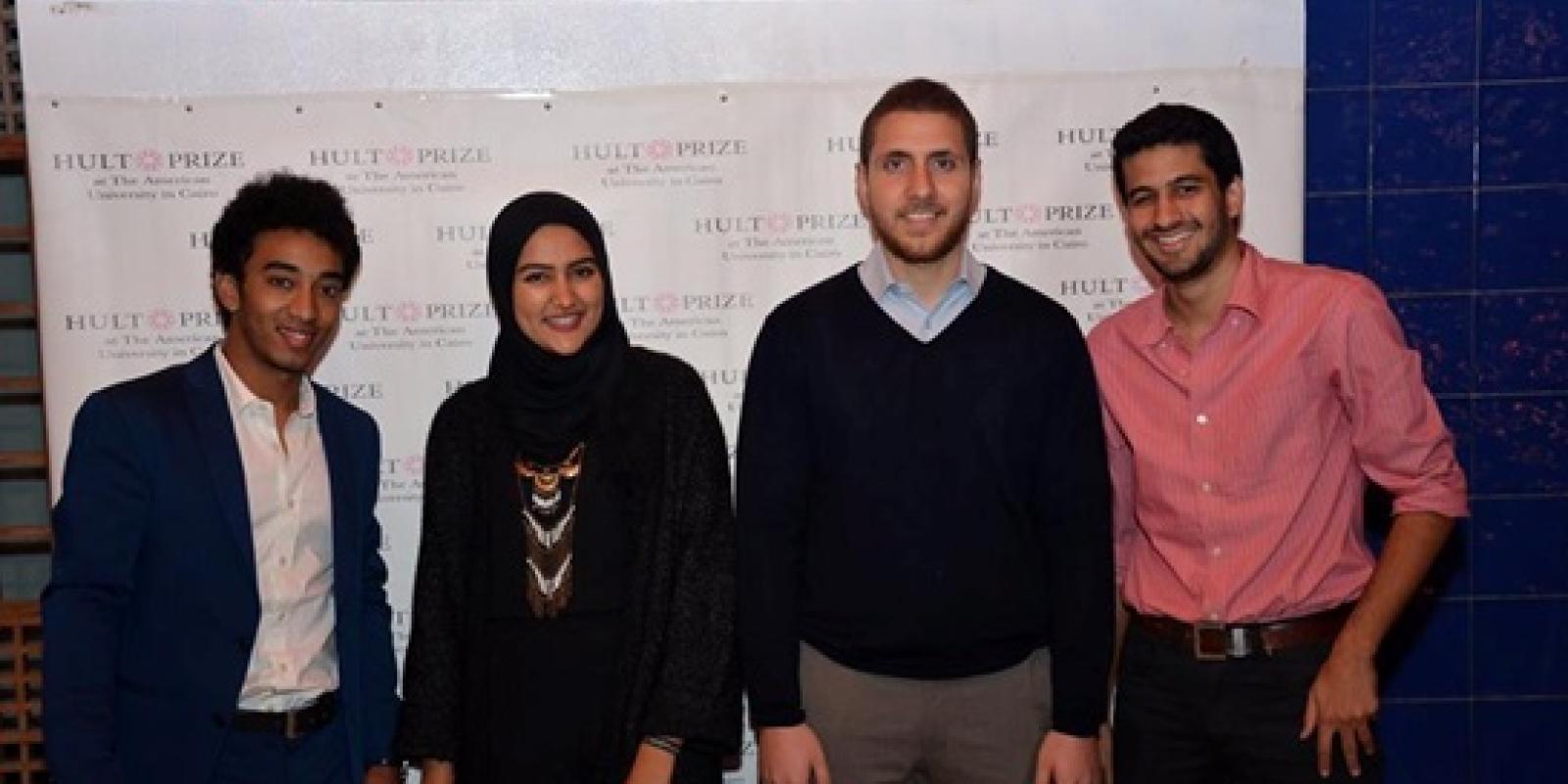
Students Work to Empower Refugees through Global Hult Challenge
At the annual Hult Prize, one of the largest student competitions for social good and dubbed “the Noble Prize for Students,” AUC teams secured top places in the local round and advanced to the regional finals. One of the teams, who won first place in the local competition, developed a project, Planet Home, a micro-financing service designed to help refugees resettle and obtain sustainable jobs.
This year’s competition theme, Refugees-Reawakening Human Potential, aims to challenge students to determine sustainable social enterprises to support refugee rights. The central challenge is for students to find solutions to social challenges while also developing a profitable business model.
The first place team, comprised of AUC students Radwa Hamed, Yasmeen Fouad, Aleya Farhoud and Laila Sameh, created an app giving refugees access to a platform that lists job opportunities and allows them to present entrepreneurial ideas to investors. Refugees are granted a starting credit upon first subscribing to the app and continue to receive credit based on their salary. With this credit, they are able to buy from local stores partnered with the service. The business venture gathers its profit from a 2 percent fee charged to these local partner stores. “This platform allows refugees a dignified way of getting food, shelter and any other services they require without relying on external aid,” said Hamed.
Founded in 2009 by entrepreneur and current CEO Ahmed Ashkar, the Hult Prize awards compelling social business ideas that aim to deal with global social issues. Each year, the theme is chosen by former U.S. President Bill Clinton, who attends the final competition as well. “I believe that no other competition provides all of the elements and support that Hult Prize provides to the teams in order for them to create the most groundbreaking and disruptive social enterprises,” said Hassan Hamdy, campus director for the Hult Prize at AUC.
Local competitions take place on university campuses around the world. Winners then move on to regional competitions that take place in Boston, San Francisco, London, Dubai and Shanghai. Those who qualify to move past the regional competition to the international finals participate in an intensive two-month business in Boston in preparation for the final round. Overall winners walk away with $1 million in seed money. AUC’s runner-up team, made up of Sarah Abu El Khair, Ahmed El Agha, Abdel Rahman Khaled and Gamal El Din Youssef, traveled to London to compete in the regional level.
In addition, Hamed’s team competed in the regional challenge in Shanghai, against teams from all over the world. She observed that the regional competition offered an opportunity to engage in networking as well. “It was very interesting to see how many people around the globe are working for social causes outside of a charity model,” shared Hamed. She was impressed with the real-life impact many of these business proposals could have. “It was very inspiring to see how governments and NGO’s are taking the initiative to support these business models,” she explained, “Some of these businesses are actually running and succeeding now.”
